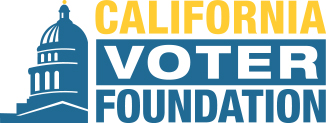Excerpt:
For years, Republicans have railed against “ballot harvesting” as an underhanded tactic by Democrats to win elections.
But for the 2024 election, the California GOP is going big on collecting ballots from voters and dropping them off at election offices or polling places, which is legal in California, with some conditions.
In part, it’s a reflection of political reality: With a few exceptions, the Republican Party has been struggling. On top of Democratic majorities in the Legislature since 1996, no Republican has been elected statewide office since 2006. And since the COVID-19 pandemic, California has sent mail ballots to every registered voter, making it easier for people to cast their ballots earlier and not just at polling places on Election Day.
“These are the rules that we have been given. And we have to play by those rules,” said Jessica Millan Patterson, chairperson of the California Republican Party. “It doesn’t make any sense to only be Election Day voters. That is like only playing three quarters of a football game.”
- - - - - - - - -
Later at the convention, though, delegates attended a session on ballot harvesting, which session leaders said could capture the votes of “lazy Republicans” in key areas. But they said it probably isn’t worth the effort in heavily Democratic neighborhoods.
While mail-in voting is widely thought of as benefiting Democrats, studies find it doesn’t favor one party over the other.
“We did not find that there was a party advantage like increasing turnout. It didn’t increase turnout more for Democrats versus Republicans,” said Mindy Romero, director of the Center for Inclusive Democracy at USC’s Price School of Public Policy.
California is one of 31 states that allows a person voting by mail to designate someone else to return their ballot, according to the National Conference of State Legislatures. Prior to 2017, only family or household members could return ballots, but the Legislature changed that in part because there was no way to enforce that law, according to Kim Alexander, president of the California Voter Foundation. (Full Story)

